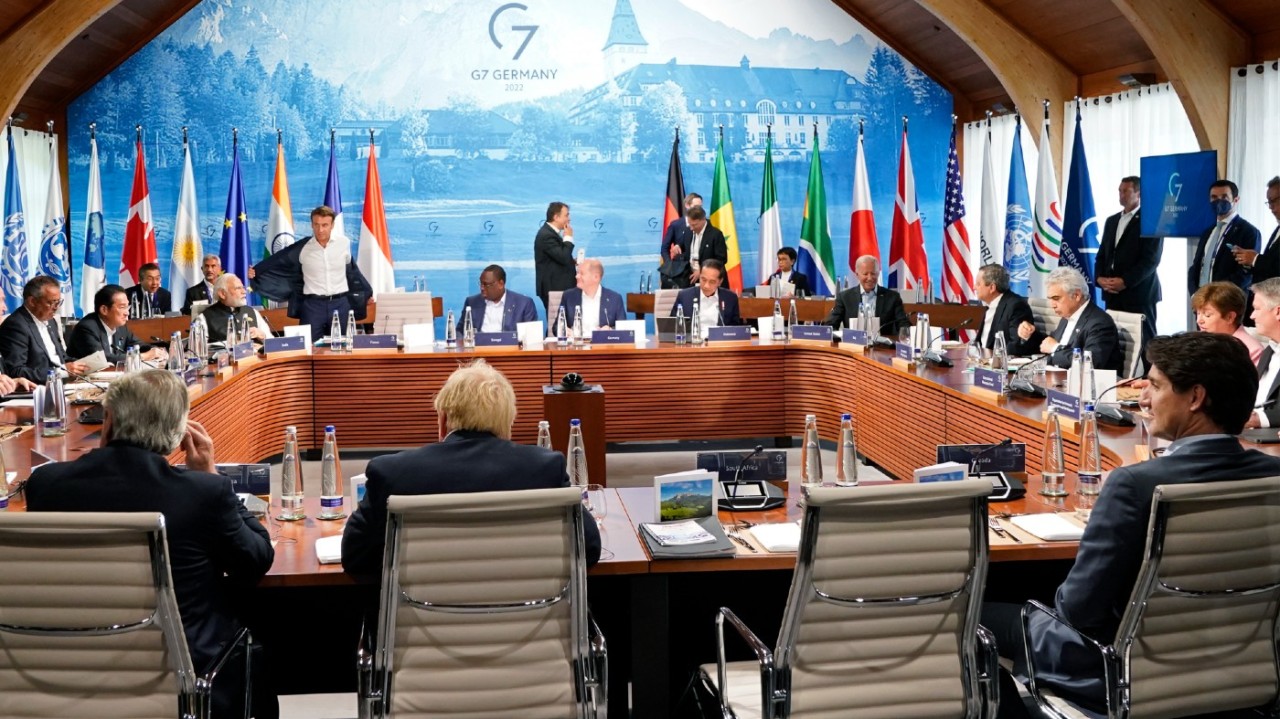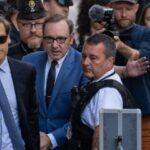
The Group of Seven (G-7) leaders met virtually on Tuesday with Ukrainian President Volodymyr Zelensky hours after Russia launched its latest barrage of strikes against the country, vowing to hold the Kremlin accountable if it follows through on its threats of using nuclear weapons.
Russian President Vladimir Putin launched dozens of missiles that landed in cities across Ukraine on Monday, killing at least 19 people. The strikes continued on Tuesday.
“We deplore deliberate Russian escalatory steps, including the partial mobilisation of reservists and irresponsible nuclear rhetoric, which is putting global peace and security at risk,” the leaders said in a joint statement following the meeting.
“We reaffirm that any use of chemical, biological or nuclear weapons by Russia would be met with severe consequences,” the statement continued.
The leaders of the world’s wealthiest democracies, which have levied multiple rounds of sanctions against Russia since its invasion began in February, promised to continue supporting Ukraine financially and militarily while simultaneously expressing a readiness to reach a peace agreement.
“With a view to a viable post-war peace settlement, we remain ready to reach arrangements together with interested countries and institutions and Ukraine on sustained security and other commitments to help Ukraine defend itself, secure its free and democratic future and deter future Russian aggression,” the leaders said.
But they made clear that Russia’s invasion violated the principles of the United Nations Charter, condemning a series of recent Russian actions and demanding Putin unconditionally withdraw all troops and military equipment from Ukraine.
“We condemn these attacks in the strongest possible terms and recall that indiscriminate attacks on innocent civilian populations constitute a war crime,” the leaders said of the recent strikes. “We will hold President Putin and those responsible to account.”
The G-7 leaders took aim at Russia’s recent illegal annexation of four regions in Ukraine’s east and south, which came after residents supposedly signed off on the move in Kremlin-orchestrated referendums.
The annexations followed a similar playbook to when Russia annexed the Crimean Peninsula in 2014.
Putin indicated Monday’s strikes came in response to an explosion that partially collapsed a key bridge linking Crimea with Russia. Beyond serving as a critical supply route for the Russian military, the bridge also held symbolic importance to Putin and his control of the peninsula.
“We solemnly reiterate that we will never recognise this illegal annexation or the sham referenda that Russia uses to justify it,” the leaders said.
The G-7 leaders also criticized Belarusian President Alexander Lukashenko’s announcement on Monday that his country will form a joint military force with Russia that will deploy to the western border of the country near Ukraine.
The leaders further noted they were troubled by leaks in the two Nord Stream pipelines, which run from Russia to Germany through the Baltic Sea, saying they suffered “deliberate damage.” Although they did not explicitly blame Russia for the explosions, the statement welcomed ongoing investigations into the incident.
“We have imposed and will continue to impose further economic costs on Russia, including on individuals and entities — inside and outside of Russia — providing political or economic support for Russia’s illegal attempts to change the status of Ukrainian territory,” the leaders wrote.




